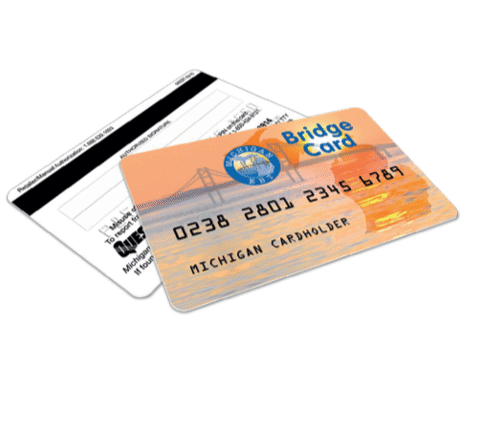Michigan’s outdated food stamp cards cost poor families $846K in stolen benefits
State hasn’t adopted chipped cards six months after fed’s suggestion
Poor Michigan families had more than $846,856 stolen from them in fiscal year 2025 so far because the food stamp program in the state hasn’t updated its card technology from magnetic stripes to chips.
This lax security protocol allows criminals to drain food stamp accounts, sometimes from halfway around the world.
Michigan Capitol Confidential discovered these losses in data obtained through a record request to the Michigan Department of Health and Human Services, which enrolled 1.4 million Michiganders in the Food Assistance Program as of February 2025. The records show a monthly breakdown of the food stamp cases and dollar amount replaced from October 2023 through December 2024.
The state health department hasn’t responded to multiple inquiries in the last three weeks about why it hasn’t upgraded its security via chipped chards or how much it would cost.
The document shows a 50% increase in reported thefts from fiscal year 2024, from 1,124 to 1,686. The dollar amounts replaced ranged from a few thousand dollars in May 2024 to $266,000 in June 2024.
Banks have protected their money through chipped credit and debit cards since around 2015.
Ten years later, the government is switching to chipped cards for the Supplemental Nutrition Assistance Program in three states — California, Oklahoma and Maryland, according to the United States Department of Agriculture.
Criminals can install fake card readers used to process payment cards such as debit and credit cards at gas stations, grocery stores, and liquor stores. The criminals can obtain card information and empty food stamp allowances.
In November 2024, USDA Secretary Thomas J. Vilsack urged governors to use chipped SNAP cards to prevent fraud.
“This means that SNAP cardholders can and should be afforded the same preventative protections that other cardholders are afforded under credit and debit industry standards,” the letter read.
In 2023, Michigan arrested three Detroiters who allegedly stole $4 million of food stamps from Californians. They cloned stolen food stamp cards, which use a magnetic strip technology similar to a hotel room key, and spent the money at Sam’s Clubs in Metro Detroit.
 Courtesy of the Michigan Department of Health and Human Services
Courtesy of the Michigan Department of Health and Human Services
The state government is about 10 years behind the private sector, Haywood Talcove, CEO of LexisNexis Special Services and Risk Solutions Government, told CapCon in a phone interview.
"Because the food insecure are treated like second-class citizens, having to use a glorified hotel room key to gain access to their benefits, while everyone else gets to use the chip technology, which protects against the criminal groups,” Talcove said, answering the question of why Michigan hasn’t updated its technology. ”Not to mention, the credit and debit cards reimburse for stolen money.”
Criminals can empty the bank accounts of poor Michiganders while in another country and then frame retailers by spoofing a seven-digit identification number that the federal government gives to retailers such as Sam’s Club, Costco, or B.J’s Wholesale Club that participate in SNAP, Talcove told CapCon in a phone interview.
Michigan’s totals for reimbursed food stamps seem too low, Talcove said. From fiscal year 2024-2025, the document reported $1.4 million in stolen benefits.
A fraud percentage of 2.5% would total $45 million in lost benefits.
In California, according to the Department of Justice, criminals stole more than $22 million of food stamps from January through March of 2024 — averaging $1.4 million a day over the 61 days. Another estimate says that California has lost $15 million monthly to food stamp fraud, Calmatters reported.
Criminals have stolen more food stamp money in 2024 than they did in 2023, according to the U.S. Secret Service.
The federal government funds the food stamp program administered by states. The federal government reimburses half of state administrative expenses to transition to chip cards.
The federal government has worked with states and the industry for two years through the Accredited Standards Committee X9, an independent body that is trying to enact chipped food stamp cards, a USDA spokesperson told CapCon in an email.
“The goal of this engagement has been to protect SNAP recipient families from benefit theft by moving EBT transactions to more secure technology, including chip cards and mobile wallet payments, and to enhance security for online purchases,” the person wrote.
Michigan Capitol Confidential is the news source produced by the Mackinac Center for Public Policy. Michigan Capitol Confidential reports with a free-market news perspective.



 Food stamp fraud is ‘devastating’ Michiganders, document says
Food stamp fraud is ‘devastating’ Michiganders, document says
 Michigan food stamp fraud spiked nearly 400% from 2023 to 2024
Michigan food stamp fraud spiked nearly 400% from 2023 to 2024
 Michigan removes means test for food stamps
Michigan removes means test for food stamps